CAPM® Meaning: What It Stands For and Why It Matters in Project Management
By: Ryan Malaluan, CAPM®; Editor: Geram Lompon; Reviewed by: Alvin Villanueva, PMP®, PMI-ACP®
“The way to get started is to quit talking and begin doing.” These words by Walt Disney highlight the need for action. This is key in
The Certified Associate in
Earning a
Key Takeaways
- Obtaining the CAPM certification demonstrates your proficiency in
project management . - It’s ideal for newcomers or those seeking to advance in their careers.
- The PMI offers the CAPM certification.
- Understanding the basics of
project management is crucial for success. - The CAPM encompasses key areas such as scope, schedule, budget, and quality.
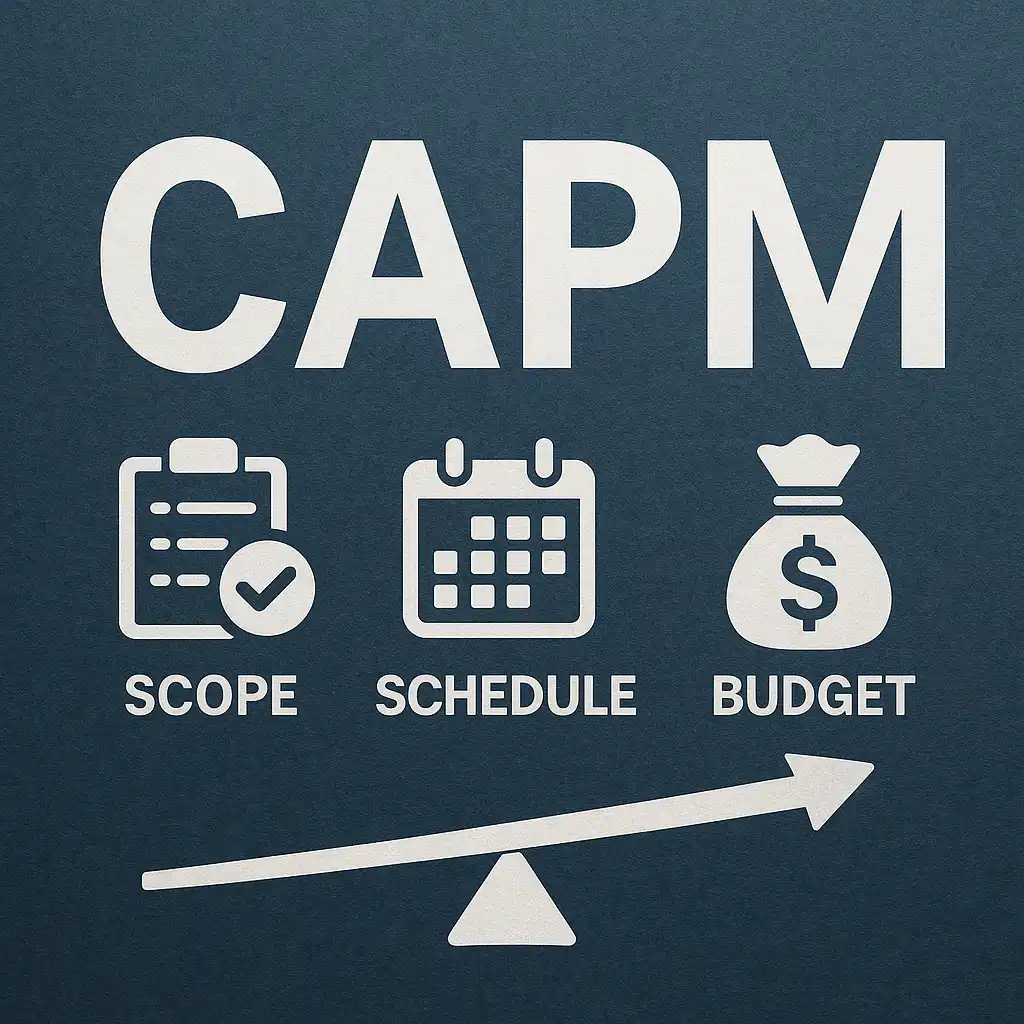
Understanding the CAPM Meaning in Project Management
In
PMI certifications, including the CAPM and PMP, are recognized credentials that help
Definition and Full Form of CAPM
CAPM means Certified Associate in
The Project Management Institute (PMI) and Its Role
The PMI is a top nonprofit for
Core Concepts Behind the CAPM Framework
The CAPM framework focuses on key areas of
Getting the CAPM certification is more than just passing a test. It demonstrates your commitment to
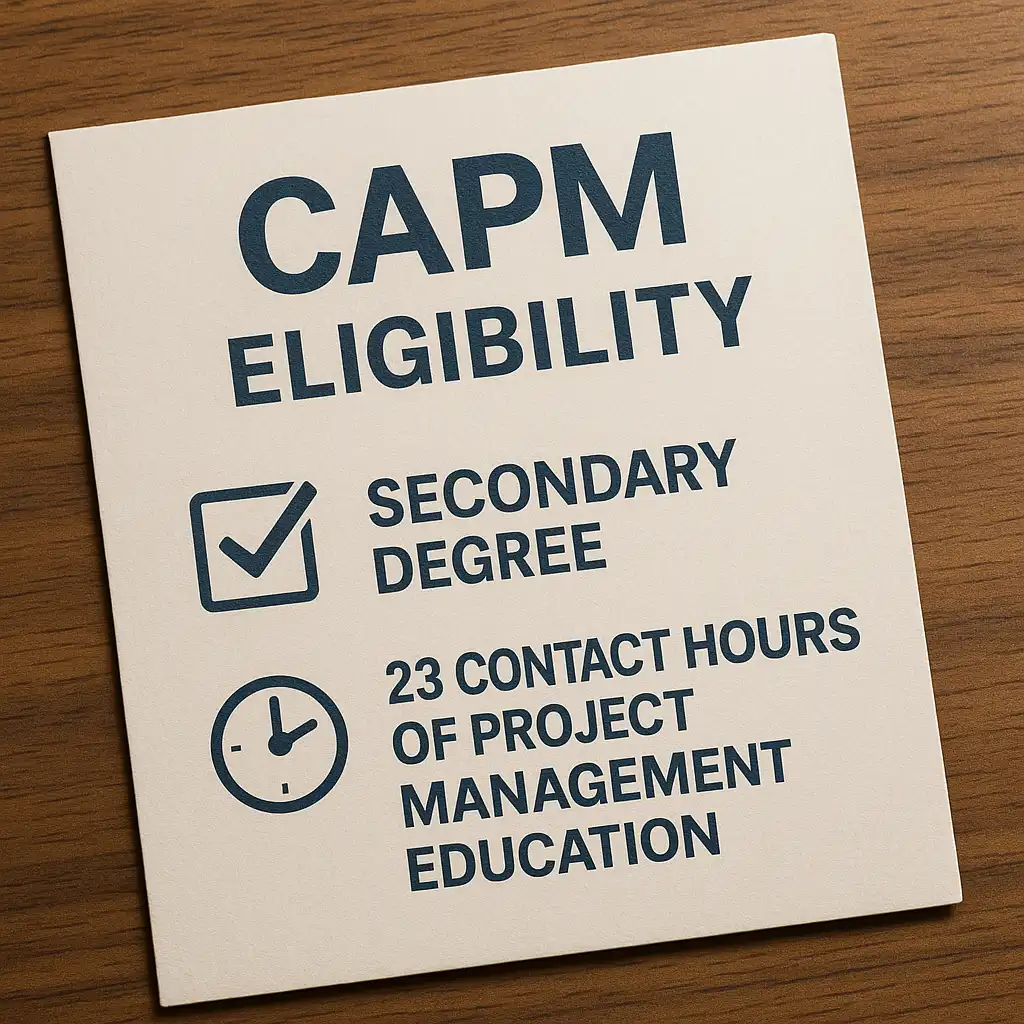
CAPM Certification Requirements and Eligibility
To earn a Certified Associate in
It is also essential to have completed your
Educational Prerequisites
You must have a secondary degree to apply for CAPM. This can be a high school diploma, GED, or an associate degree, all of which are accepted as valid educational qualifications. This requirement shows you have a basic education level.
Having a four-year degree can also impact your eligibility for advanced
Project Management Education Requirements
You must also have completed 23 hours of
It includes the five process groups and nine knowledge areas. Completing 23 hours of
Application Process and Timeline
After meeting the education and
Once your application is approved, you can take the CAPM exam. It’s important to plan your application and exam preparation well. This ensures you meet your goals.
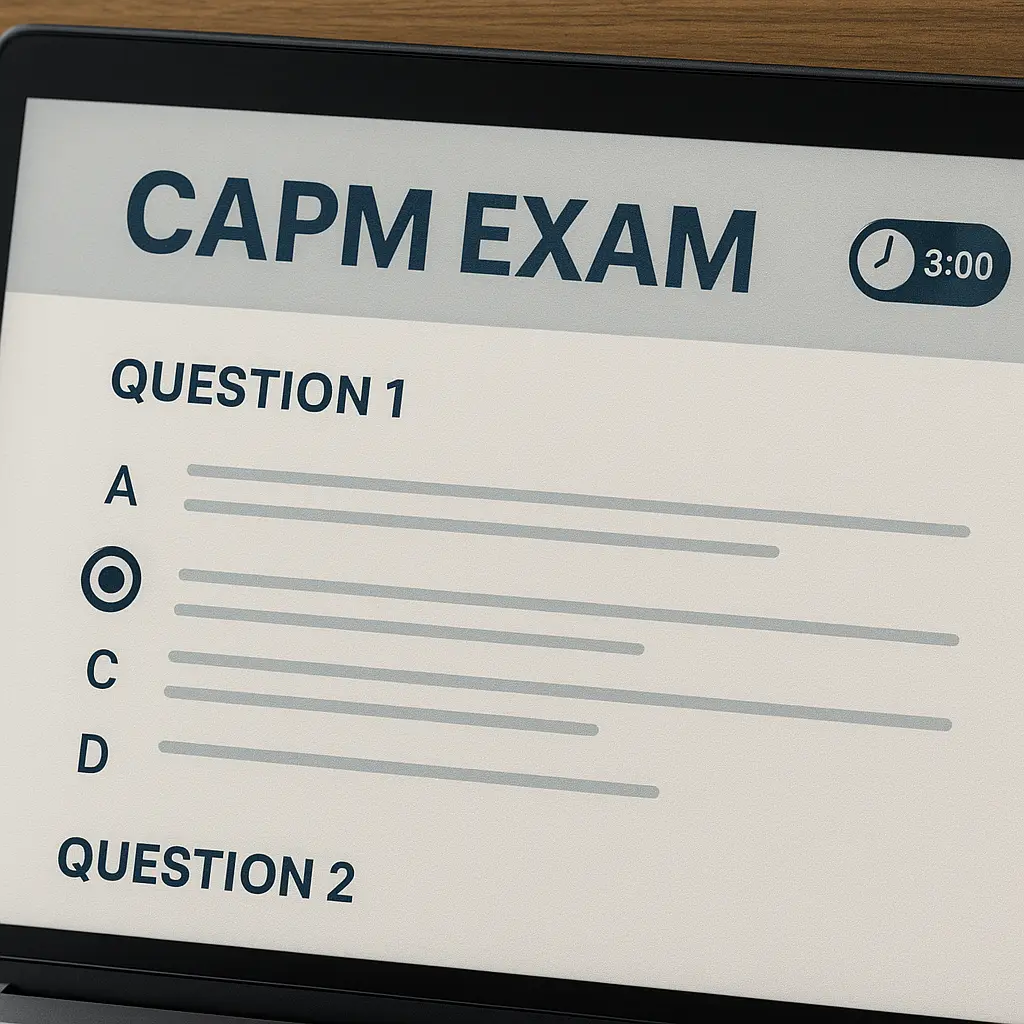
The CAPM Exam Structure and Content
To pass the CAPM exam, knowing its structure and content is key. The Certified Associate in
Compared to the PMP exam, the CAPM exam is less complex and has fewer experience requirements; however, both exams require a solid understanding of the PMBOK® Guide and formal study. Using complete study materials is essential for thorough exam preparation.
Exam Format, Questions, and Duration
The CAPM exam includes 150 multiple-choice questions, and you’re given three hours to complete it. This exam isn’t just about memorizing concepts—it tests how well you understand
Whether it’s managing teams, timelines, or tasks, the questions are designed to assess both your theoretical knowledge and practical skills, making it a comprehensive measure of your
Knowledge Areas and Process Groups Covered
The exam covers a wide range of areas and process groups. This includes integration, scope, time, cost, quality, resource, communications, risk, and procurement management. You’ll also be tested on the five process groups: initiating, planning, executing, monitoring and controlling, and closing.
These knowledge areas and process groups are defined by the
Preparation Resources and Study Materials
There are several ways to prepare for the CAPM exam. You can use the
Some top study materials include:
- PMI’s CAPM Handbook
- Online courses, such as those offered by PMI or other reputable providers. PMI Authorized Training Partners provide both online and in-person courses designed to prepare you for the exam.
- In-person courses for hands-on, face-to-face learning
- Study guides and practice exams
- Exam prep courses
By utilizing these resources and familiarizing yourself with the exam format and content, you’ll feel well-prepared for the exam.
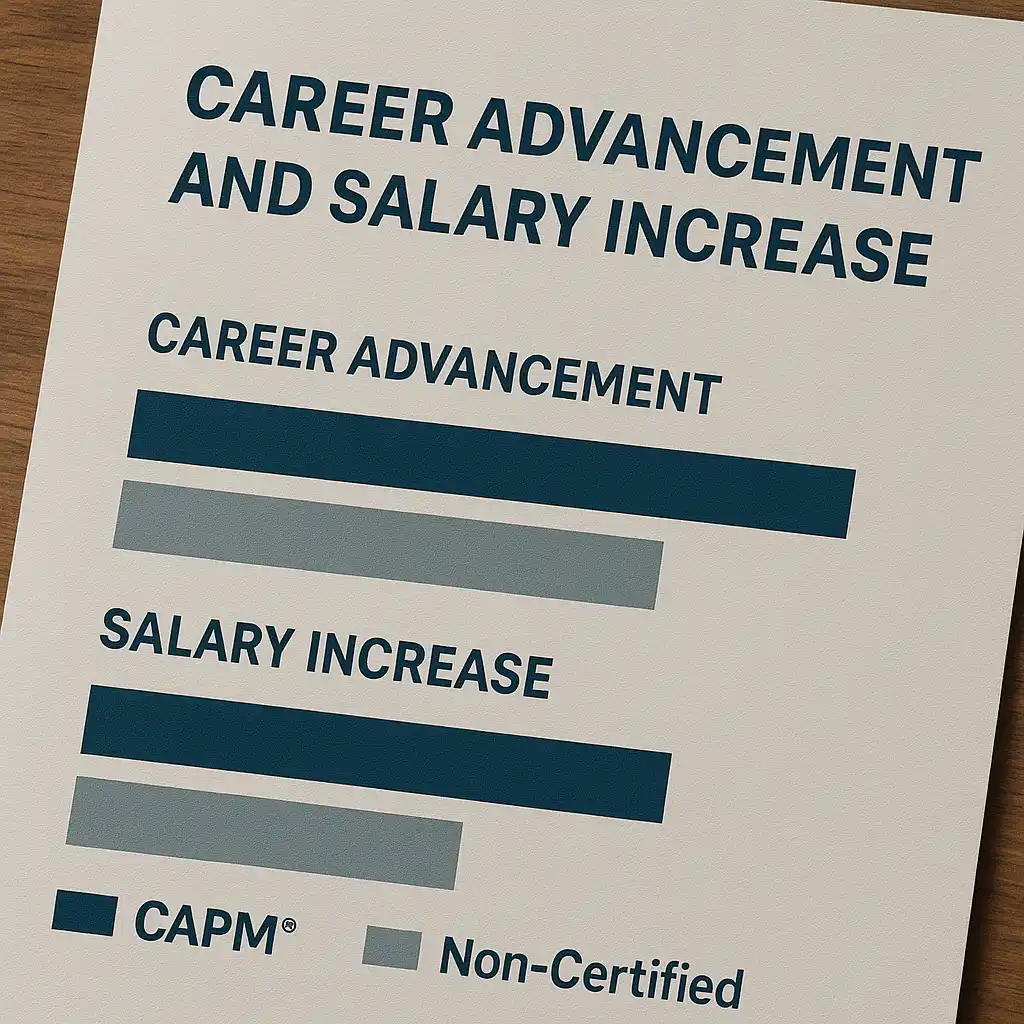
Benefits of Earning the CAPM Certification
The CAPM certification offers numerous benefits for individuals seeking to advance in
With the increasing importance of
Career Advancement for Entry-Level Project Managers
Getting the CAPM certification is a big step up in your career. It enhances your skills and demonstrates your commitment to your job. Many jobs for new project managers require this certification.
With the CAPM, you’ll find better job opportunities and advance more quickly. The
Salary and Job Market Demand
CAPM holders usually earn more than those without it. The certification is valued worldwide. According to industry sources, such as Forbes and Payscale, the average salary for CAPM holders ranges from $65,000 to $90,000 per year, depending on experience and location.
The need for project managers is growing fast. Recent labor statistics from the US Bureau of Labor Statistics show strong job market growth for
PMI data shows that CAPM holders receive a significant payback. They see higher salaries and better job chances.
Knowledge and Skill Enhancement
Preparing for the CAPM exam enhances your
Earning the CAPM certification signals that you’re ready to take on new professional challenges. It also reflects your commitment to continuous learning, growth, and career advancement in the field of
Global Recognition and Portability
The CAPM certification is widely recognized and respected globally. It allows you to work in various countries and industries. You can take your certification with you wherever you go.
This global recognition is key in today’s world. Project managers often work on international projects or with teams from other countries. The global implications of
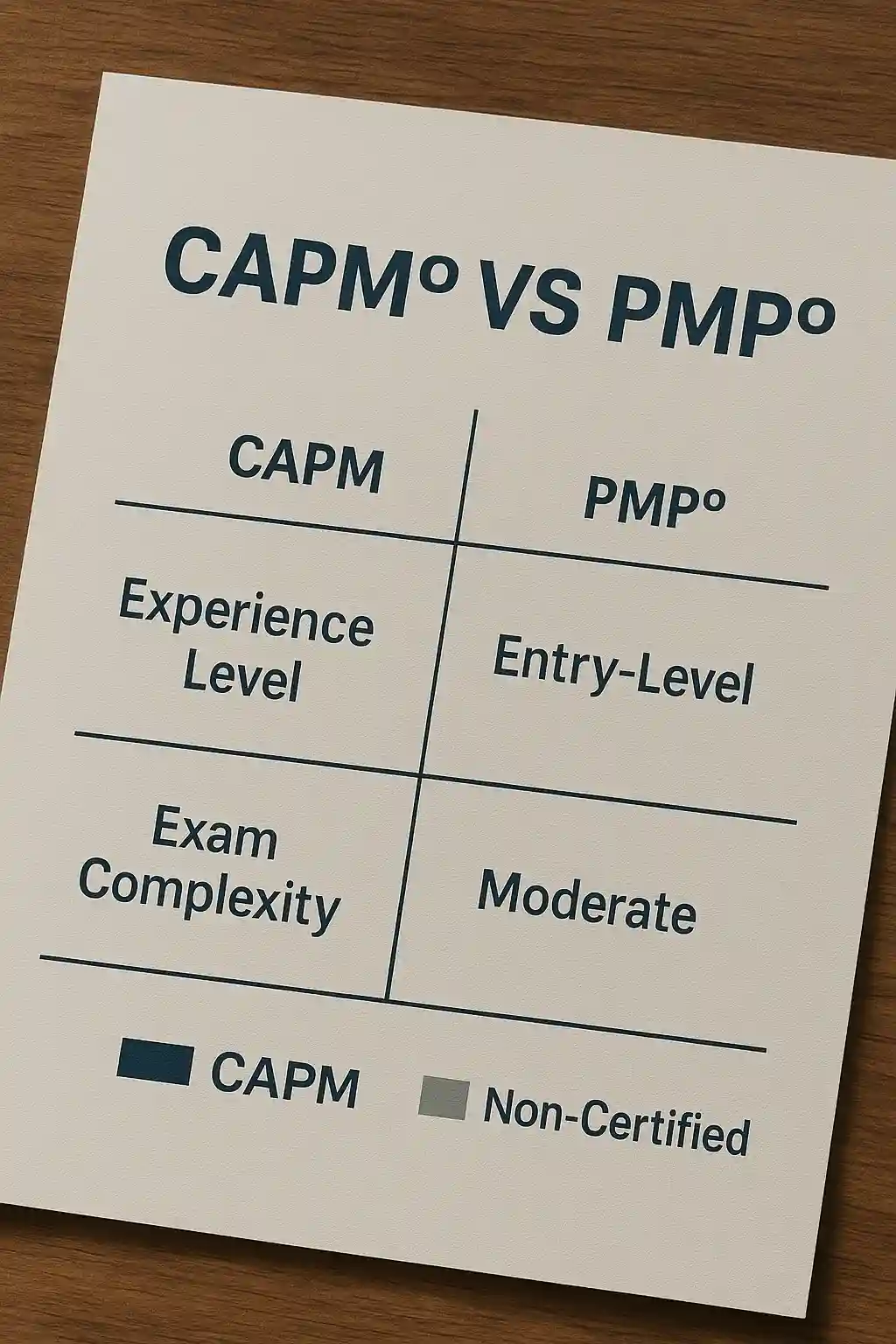
CAPM vs. Other Project Management Certifications
Exploring
CAPM vs. PMP: Key Differences
The Certified Associate in
The CAPM is suitable for beginners or those seeking to demonstrate their knowledge of
- CAPM: Needs less experience, focuses on basic concepts, great for newbies.
- PMP: Requires substantial
project management experience, dives deep intoproject management , for established professionals.
When to Choose CAPM as Your Starting Point
If you’re new to
It’s ideal for beginners who want to learn the ropes and gain credibility. Think of CAPM as your first smart step toward understanding
Career Progression: Using CAPM as a Stepping Stone
The CAPM is a great way to kickstart your
Earning the CAPM certification can help you land better job opportunities or move into new roles within your organization. Additionally, it provides a solid foundation for those who plan to pursue more advanced certifications later, such as the PMP.
Alternative Entry-Level Project Management Certifications
While the CAPM is popular, other entry-level certifications are also worth considering. These come from respected organizations and offer similar foundational knowledge. Taking
Some alternatives include:
- PRINCE2 Foundation: Teaches a structured
project management approach. - Agile Certifications: Focuses on agile methods, perfect for agile teams.
- Scrum Master Certification (SMC): Concentrates on the Scrum framework and practices.
When selecting an alternative, consider your career goals, the projects you undertake, and the methods used in your industry.
Research on
The Investment: CAPM Certification Costs and ROI
Thinking about earning your CAPM certification? It’s important to understand all the costs involved. Beyond the exam fee, you’ll need to factor in the cost of study materials, prep courses, and the time commitment required to be fully prepared.
Budgeting for your certification journey ensures you’re not caught off guard. Planning ahead allows you to stay focused and motivated while balancing your financial investment with your long-term career goals.
Exam Fees for PMI Members vs. Non-Members
If you’re a PMI member, the CAPM exam costs $225, compared to $300 for non-members. That’s a $75 savings right away. Beyond the exam fee discount, PMI members also gain access to exclusive resources, webinars, and global networking opportunities.
Whether you’re just starting your
Preparation Costs and Time Investment
Passing the CAPM exam needs good prep. Preparation costs can vary based on the study materials you choose. Here are some examples:
- Official CAPM Handbook: $45
- Online courses and training programs: $200-$1,000
- Study groups and boot camps: variable costs
- Practice exams and simulators: $50-$100
Studying for the exam also takes time. Preparation time can range from weeks to months, depending on your experience.
Certification Maintenance and Renewal Requirements
Keeping your CAPM certification active requires ongoing learning. PMI asks CAPM holders to get 15 PDUs every three years. You can earn these through:
- Attending workshops and conferences
- Completing online courses
- Participating in webinars
- Engaging in self-directed learning
Return on Investment Analysis
Earning a CAPM certification is a smart investment in your career. While the cost may seem high at first, the benefits often outweigh it. Certified professionals frequently enjoy better job opportunities, increased salaries, and greater credibility in the
Although the financial return can vary, the long-term benefits of career advancement, industry recognition, and skill development make pursuing the CAPM a valuable and strategic move for aspiring project managers.

Wrapping Up: Is CAPM Certification Right for You?
By now, you know more about the CAPM certification. You’ve learned about its meaning, what you need to get it, how the exam works, and its benefits. This knowledge helps you determine if the CAPM is a good fit for your career in
Obtaining the CAPM certification can help you advance in your career. It demonstrates that you possess considerable knowledge of
Think about your current job, education, and what you want to achieve in your career. If you want to start or grow in
In conclusion, the CAPM certification is a wise choice for those seeking a solid foundation in
Reference
Forbes Advisor. (2024). CAPM certification cost: What you need to know. https://www.forbes.com/advisor/education/certifications/capm-certification-cost/
IMT-PM. (2024). CAPM exam in 2025: Everything you need to know. https://www.imt-pm.com/capm-exam-in-2025-everything-you-need-to-know/
Project Management Institute. (n.d.). CAPM exam content outline. https://www.pmi.org/-/media/pmi/documents/public/pdf/certifications/capm20ecofinal.pdf
SalarySolver. (2024). CAPM certification salary in 2025. https://salarysolver.com/capm-certification-salary/

